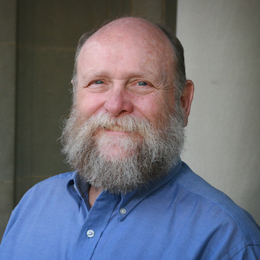
Noblit will be honored with the Lifetime Achievement Award for Distinguished Contributions to Social Contexts in Education Research during the AERA’s Annual Meeting next month in Toronto.
Noblit joined the School of Education in 1979, where he mentored dozens of doctoral students.
He began his career as a sociologist in the turbulent 1970s. While working on his Ph.D. in sociology at the University of Oregon, he conducted research on crime, delinquency and deviance that led to a focus on the impact of schooling on the futures of youth. He obtained his Ph.D. in 1973.
Noblit has studied school desegregation, with a program of research on the social construction of race, using ethnographic research to study schools and other educational scenes.
Noblit, with co-author Dwight Hare in their 1988 publication of “Meta-Ethnography: Synthesizing Qualitative Studies,” developed a research method for gathering and analyzing data from multiple qualitative studies to uncover patterns unseen in individual studies. Since then, the meta-ethnography process has been cited by more than 2,800 scholars and is now used in other fields, including in the study of health services.
In their letter nominating Noblit for the award, School of Education faculty member Sherick Hughes and Cornell University faculty member Sofia Villenas, praised Noblit for his work mentoring and collaborating with his doctoral students, many of whom have gone on to lead productive careers as leading educational researchers.
Hughes and Villenas, both mentees of Noblit’s when they earned their doctorates at Carolina, said: “Whereas scholars of color tend to be closest to students of color; and white scholars tend to be closest to white students; and LGBTQIA+ scholars tend to be closest to LGBTQIA+ students, George seems closest to every single one of his graduate students.
“George made each of us feel like we are his most trusted colleagues and his best friends,” Hughes and Villenas wrote. “For many women and graduate students of color, he became either the only one; or one of the very few white males (if not the first white male) that they began to trust as a mentor.”
They also said: “George offers the rare, ongoing investment in the abilities and intellectual worth of his mentees, and his continued active interest in helping us further our own professional aims particularly in qualitative education research and in research on the Foundations and Social Context of Education.”
Noblit’s work has been recognized with many other awards. He was selected by the Society of Professors of Education for the 2016 Mary Anne Raywald Award, which recognizes people who have made extensive and outstanding contributions to the study of education. He won the Impact Award from the Black Alumni of the School of Education in 2011, recognizing his dedication to recruiting, retaining, sponsoring and mentoring students of color. Noblit also has won a Faculty Award for Excellence in Doctoral Mentoring from Carolina’s Graduate School.
If you plan to go
Noblit will be presented with the award during the Division G business meeting, which is scheduled to take place on Sunday, April 7, from 7:05 p.m. to 8:35 p.m., at the Metro Toronto Convention Center, 800 Level, Room 801A.